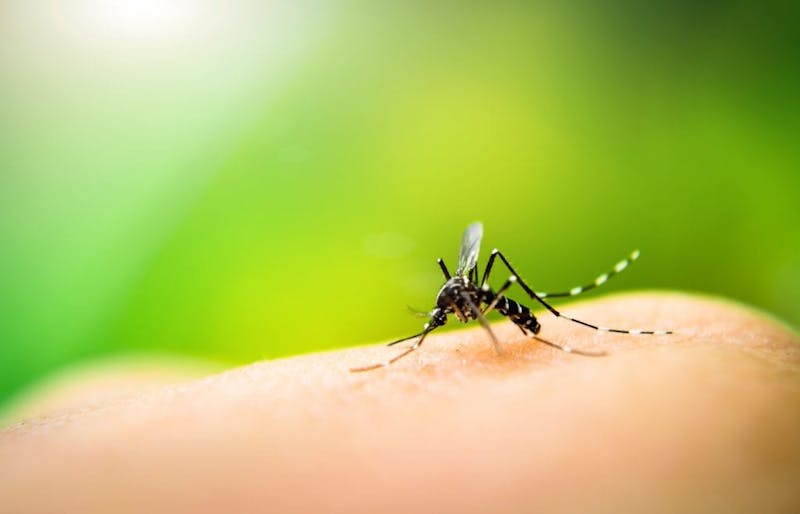Before you grab that DEET-based mosquito repellent, consider using a natural option instead. DEET, also known as diethyl-meta-toluamide, by any other name still stinks. And research proves that the main ingredient in commercial mosquito repellents leaves more than a bad odor. According to a Duke University study, it damages brain cells, can cause behavioral changes and can have harmful interactions with some medications. The scientists also observed that it caused brain cell death in animals frequently exposed to or after prolonged use of DEET.
Additional research found that up to 15 percent of DEET is absorbed through the skin directly into the bloodstream. According to safety data sheets on diethyl-meta-toluaminde, the toxic effects of this chemical include: reproductive disturbances, genetic material mutations, and central nervous system disorders.
There’s no need to suffer long-term and serious health consequences to ward off pesky mosquitoes. Choose a natural alternative that’s proven to work as effectively as DEET or in some case, MORE effectively than DEET.
CATNIP
You can drive cats wild and make mosquitoes run in terror, according to research at Iowa State University which found that the essential oil found in the herb catnip is about 10 times more effective than DEET in repelling mosquitoes.
CITRONELLA
Use only pure essential oil of citronella—not fragrance oil. Oils purchased in bulk for burning are not adequate for applying topically to your skin. For your skin it is best to get a high quality citronella essential oil from a natural food store. While it’s not as effective as catnip, it’s still a good option.
GARLIC
Eat lots of fresh garlic or take it in capsules—mosquitoes can’t stand the stuff.
LAVENDER
Lavender essential oil smells great and is a commonly used and effective mosquito repellent. It’s best diluted in a carrier oil like apricot kernel, sweet almond or coconut oil. If you can find organic soy oil, it is also a good option since it also keeps mosquitoes at bay.
NEEM OIL OR NEEM SEED OIL
According to a study by the US National Research Council neem oil is more effective than DEET. The results were confirmed by scientists at the Malaria Institute in India and in research cited in the Journal of the American Mosquito Control Association. Neem is a plant that grows in India.
ORGANIC SOY OIL
Research cited in The New England Journal of Medicine found that repellents made of soybean oil are just as effective as DEET-containing repellents. Soy oil is inexpensive and easy to find, making it an excellent choice. Plus, it is an excellent body moisturizer. As an aside, research shows that an ingredient in soy can slow the growth of body hair when applied topically. Choose organic soy oil if possible since many soy crops are now genetically-modified.
LOTUS
New research published in the Asian Pacific Journal of Tropical Medicine shows that lotus (Nelumbo nucifera) is an effective mosquito repellent and also helps kill mosquito larvae. Since lotus grows in water it is a good option as a natural repellent in backyard ponds and water features rather than something that is applied topically.
BLACK PEPPER
New research from the same study shows that an extract (the study used an alcohol extract but black pepper essential oil would probably work too) of black pepper is effective in repelling mosquitoes.
I mix about 30 drops of the essential oils of catnip, citronella, lavender, neem and black pepper (total, so about 6 drops of each essential oil) into about 30 mL of an unscented and natural oil or moisturizer, which I keep handy in a jar. I rub a bit onto my skin prior to heading outdoors. You can also mix 30 drops of these essential oils into organic soy oil for extra protection. Always do a 24-hour skin test to be sure you don’t have sensitivities to any of the oils.
SOURCE: http://www.care2.com/greenliving/8-natural-mosquito-repellents.html


